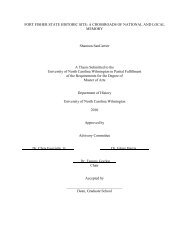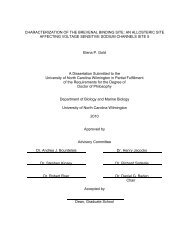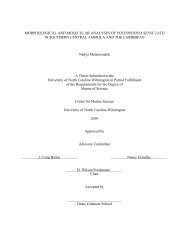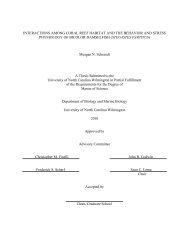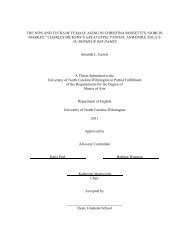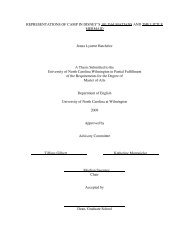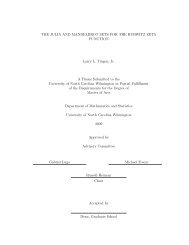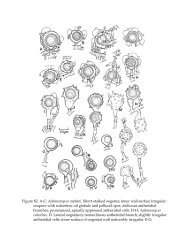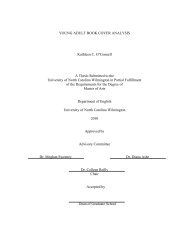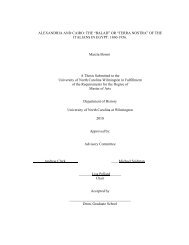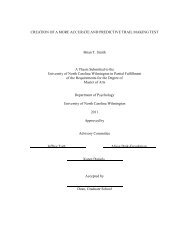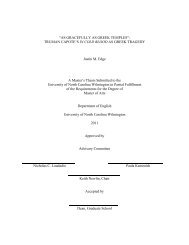AN AUGURY OF REVOLUTION: THE IRANIAN STUDENT ...
AN AUGURY OF REVOLUTION: THE IRANIAN STUDENT ...
AN AUGURY OF REVOLUTION: THE IRANIAN STUDENT ...
You also want an ePaper? Increase the reach of your titles
YUMPU automatically turns print PDFs into web optimized ePapers that Google loves.
in the United States were Communist inspired. 360 However, while recalling Iranian student<br />
demonstrations in the United States just before his death in 1980, the shah genuinely believed<br />
that the oil companies and the CIA were involved in “fomenting and financing” the activities of<br />
Iranian students in the U.S and that “This effort acquired a professional polish over the years that<br />
students could not have achieved on their own.” 361 One must conclude that the shah temporarily<br />
scaled back his suspicions from the early and mid 1960s because he was beginning to receive the<br />
large amounts of sophisticated American military hardware that he had always desired.<br />
However, student unrest was still a concern to both the American and Iranian<br />
governments. By 1968 the British withdrawal from the Persian Gulf was definite, and<br />
Washington had a great interest in maintaining the shah’s cooperation with other Middle Eastern<br />
nations to prevent an increase in the Soviet or radical Arab presence in the region. 362 However,<br />
the relationship between Tehran and Washington became temporarily uncertain when Johnson<br />
announced on 31 March 1968 that he would not seek re-election. 363 The amount of support that<br />
the shah received from Washington very much depended on personal relationships at the highest<br />
level. With men such as Robert Kennedy running for president in 1968, the relationship between<br />
the United States and the shah could have shifted. Therefore, the shah had a “feeling of great<br />
sorrow and sadness of learning of the President’s decision to not seek re-election.” 364<br />
360 Telegram form the Embassy in Iran to the Department of State, “Shah’s Preoccupations,” 14 March 1968, FRUS<br />
1964-1968, Vol. XXII, 481.<br />
361 Mohammad Reza Pahlavi, Answer to History (New York: Stein and Day Publishers, 1980), 146.<br />
362 Memorandum from the President’s Special Assistant (Rostow) to President Johnson, “Appointment for the Shah<br />
of Iran,” 6 March 1968, FRUS 1964-1968, Vol. XXII, 476.<br />
363 “The President’s Address to the Nation Announcing Steps To Limit the War in Vietnam and Reporting His<br />
Decision Not To Seek Reelection,” 31 March 1968, The Public Papers of Lyndon B. Johnson,<br />
http://www.presidency.ucsb.edu/ws/ (accessed on 14 July 2008).<br />
364 Telegram from the Department of State to the American Embassy in Tehran, 3 April 1968, General Records of<br />
the Department of State, Central Foreign Policy Files 1967-1969, Box 2216, Folder POL 7 IR<strong>AN</strong> (1/1/68), RG 59,<br />
NA.<br />
86



